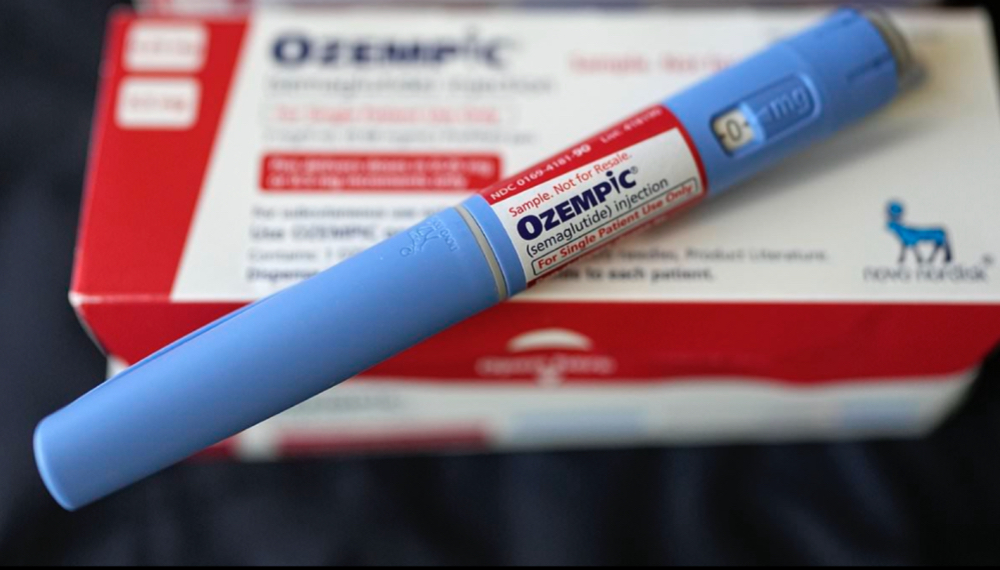LILY ANDERSON / ASST. OPINION EDITOR
It’s no secret that our society has always been addicted to quick fixes and cheat codes. For decades, the weight loss industry has capitalized on this obsession with instant gratification. While the solution used to be fad diets and unsustainable workouts, the new answer to the never-ending search for skinny is Ozempic.
This so-called “miracle drug” has taken the world by storm. Novo Nordisk, a company based in Denmark, produces Ozempic, and individuals self-administer it via injection. If it sounds too good to be true, that’s because it is. Ozempic lacks FDA approval for weight loss, and its unintended usage and normalization are entirely unethical. Promoting Ozempic as a weight-loss tool heightens issues surrounding body image and eating disorders while also making it harder for those with diabetes who need the drug to access it.
Ozempic was created for people with type-2 diabetes. It is proven to lower high blood sugar levels and reduce the risk of cardiovascular issues such as strokes, heart attacks or death. It is designed for long-term use for adults with type-2 diabetes. Ozempic began to be used as a weight-loss aid around 2021 when people realized that it mimics a hormone that makes you feel full and slows digestion. Its frequent side effects include nausea, vomiting, dehydration, abdominal pain, constipation and hair loss.
Once people without type-2 diabetes realized they could use this drug to lose weight, its usage increased by 300% in under three years. Doctors wrote nine million prescriptions for Ozempic in the last three months of 2022 alone. In July 2023, a shortage occurred, making it harder for people with type-2 diabetes who rely on the drug to access it.
The doctor’s office isn’t the only place Ozempic has gained traction; the drug has gone viral. A quick search on TikTok results in hundreds of thousands of videos discussing Ozempic. SNL aired a skit mocking the drug’s usage, and many celebrities, such as Chelsea Handler and Sharon Osbourne, have spoken openly about their experience with Ozempic.
Over 84% of young adults report using social media, meaning that most of us here at USD have seen Ozempic’s platform firsthand. Sharing information regarding how Ozempic can help those who need it for prescribed health reasons is one thing, but celebrities’ normalization of using it for appearance-related reasons puts impressionable audiences in a vulnerable position.
Overusing Ozempic promotes the idea that thinness is the ideal body image, suggesting that injecting oneself with a substance intended for health issues one doesn’t have is a reasonable means to achieve it. Promoting thinness as the end-all-be-all is an issue in itself and is a concept that promotes disordered eating and relationships with food.
Skinniness as a beauty standard negatively impacts countless people. Within the U.S., 9% of people suffer from disordered eating at some point in their lives. When you look at college students specifically, up to 20% of women and 10% of men struggle with an eating disorder, and the ages of 18 and 21 are the median age of eating disorder onset. College students are susceptible to disordered eating in general, which makes the prevalence of Ozempic even more concerning.
Many people need to realize that Ozempic is not a permanent fix. Your body learns to rely on the drug to sustain weight-loss, meaning people regain weight when they stop using it. Research published in the journal of Diabetes, Obesity, and Metabolism has found that nearly everyone using Ozempic will regain at least 2/3 of the lost weight. This study was funded by Novo Nordisk, meaning the creators of Ozempic know this is an issue. This rebound weight can be challenging for people to cope with and can lead to even more disordered habits.
Wegovy, another injectable drug, is explicitly intended for weight loss. Celebrities like Elon Musk and Oprah have spoken about using it and the weight loss they experienced. It is produced by the same company as Ozempic, though as a larger dose, and it is usually not covered by insurance. While Wegovy has been approved for weight management, it is still only intended for people who are categorically obese or have health-related issues due to weight, not for people looking to slim down for appearance.
Both of these drugs are just another way for corporations to increase insecurities and then profit off of them. Not only are pharmaceutical companies making money off this, but specific luxury gyms like Equinox even offer programs for people on Ozempic. WeightWatchers, a weight-loss program that claims to be nutrition-focused, also launched a subscription program for people using Ozempic and Wegovy. Instead of using their platforms to educate people about sustainable weight-loss and healthy eating, these companies have realized how much money they can make by pushing Ozempic. Capitalism is on display, and it is harming everyone involved.
My hope for the future is that society prioritizes safe and sustainable ways to stay healthy, such as mindfully listening to your body’s actual needs through intuitive eating and balanced exercise. The narrative that thinness equals success or happiness is ingrained in our culture, but it doesn’t have to stay this way. There has definitely been a rise in body positivity over the last few years, but it is still not enough.
The normalization of drug use like Ozempic for weight loss not only fuels harmful bodily expectations but also underlines the insidious nature of profit-driven exploitation. The strongest thing someone can do is challenge the status quo and prioritize their genuine health over superficial appearances, rejecting the notion that an injection can ever replace self-love and well-being.
No injection can ever replace self-love and well-being. Photo courtesy of @Tristands_/X




Leave a comment